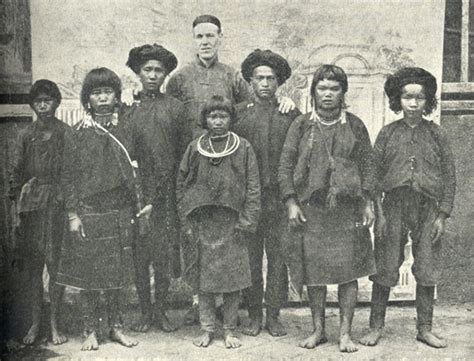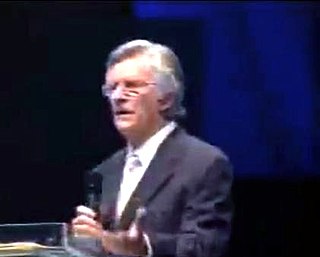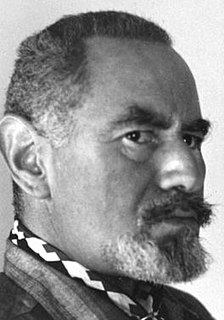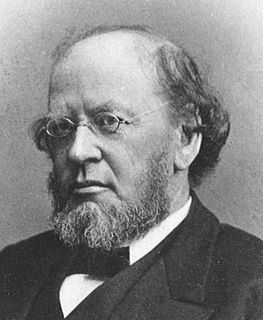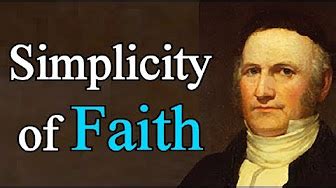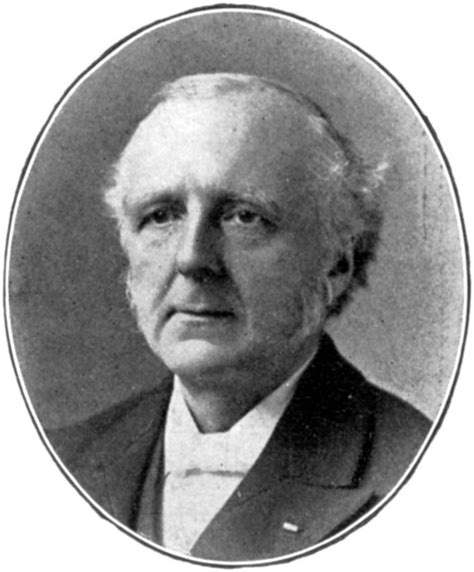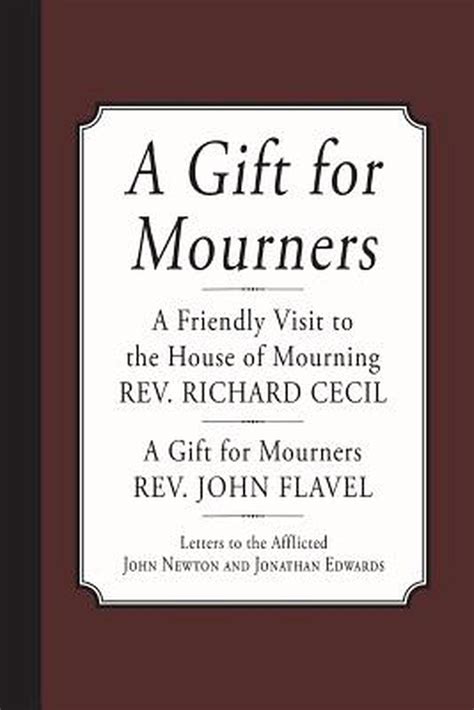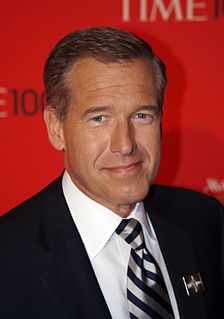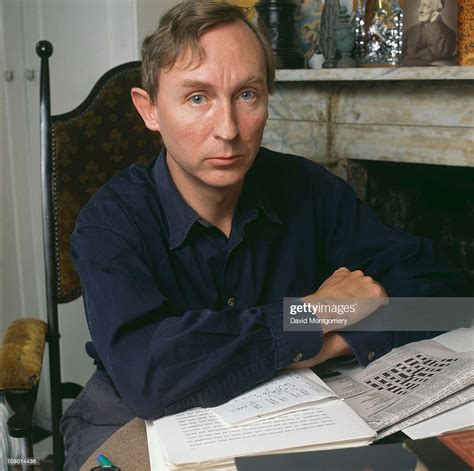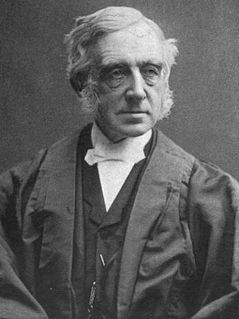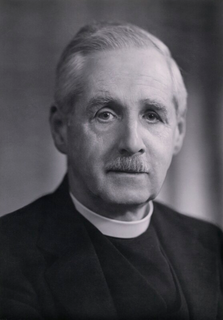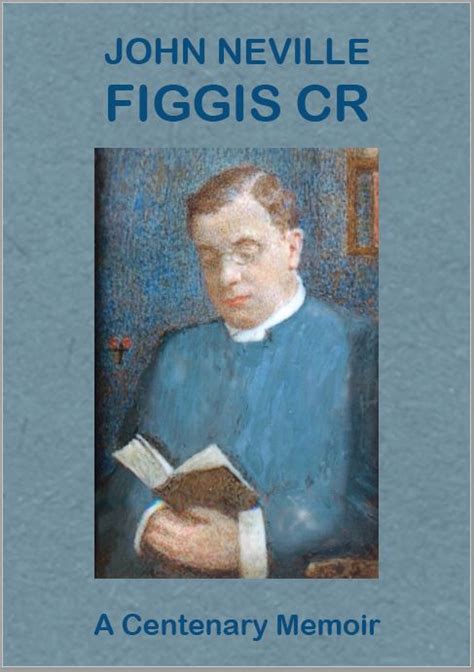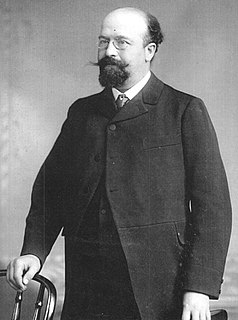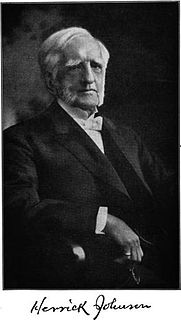Top 195 Unbelief Quotes & Sayings - Page 3
Explore popular Unbelief quotes.
Last updated on December 18, 2024.
It is not science which leads to unbelief but rather ignorance. The ignorant man thinks he understands something provided that he sees it every day. The natural philosopher walks amid enigmas, always striving to understand and always half-understanding. He learns to believe what he does not understand, and that is a step on the road to faith.
I can't believe in the God of my Fathers. If there is one Mind which understands all things, it will comprehend me in my unbelief. I don't know whose hand hung Hesperus in the sky, and fixed the Dog Star, and scattered the shining dust of Heaven, and fired the sun, and froze the darkness between the lonely worlds that spin in space.
Faith, to my mind, is a stiffening process, a sort of mental starch, which ought to be applied as sparingly as possible. I dislike the stuff. I do not believe in it, for its own sake, at all... My lawgivers are Erasmus and Montaigne, not Moses and St Paul. My temple stands not upon Mount Moriah but in the Elysian Field where even the immoral are admitted. My motto is 'Lord, I disbelieve - help thou my unbelief.
I am as sure as I am of the fact of Christ's reign, that a comprehensive and centralised system of national education, separated from religion, as is now commonly proposed, will prove the most appalling enginery for the propagation of anti-Christian and atheistic unbelief and of anti-social nihilistic ethics, social and political, which this sin-rent world has ever seen.
It is true that infidelity cannot withstand the force of reason and argument; but true godly example can come nearer the lifespot of religion. It knocks at the door of the heart. If the truths of Christianity were seconded by the devoted and pious lives of all her professed disciples, the unbelief of the world would soon cease. Private example of godliness is what the world most needs.
If we let ourselves believe that man began with divine grace, that he forfeited this by sin, and that he can be redeemed only by divine grace through the crucified Christ, then we shall find peace of mind never granted to philosophers. He who cannot believe is cursed, for he reveals by his unbelief that God has not chosen to give him grace.
Our Lord's descent from the holy heights of the Mount of Transfiguration was more than a physical return from greater to lesser altitudes; it was a passing from sunshine into shadow, from the effulgent glory of heaven to the mists of worldly passions and human unbelief; it was the beginning of His rapid descent into the valley of humiliation.
Hebrews 3:19 tells us why the children of Israel did not enter into the promised land. Their problem was the same thing that keeps children of God today from enjoying the full benefits of their salvation: UNBELIEF I point this out not to condemn; rather, my desire is to see the children of God fully possess all of their benefits in Christ.
At least one indication of unbelief is the tendency to measure life's challenges against our own adequacy instead of God's promises. To enter our Sabbath rest, we must put an end to self-reliance - trusting in our own abilities to overcome difficulties, rise above challenges, escape tragedies, or achieve personal greatness.
As no good is done, or spoken, or thought by any man without the assistance of God, working in and with those that believe in him, so there is no evil done, or spoken, or thought without the assistance of the devil, who worketh with strong though secret power in the children of unbelief. All the works of our evil nature are the work of the devil.
The most interesting character to me is someone who is stuck in the no man's land between Belief and Unbelief, Faith and Faithlessness. I'm capitalizing like a German, but it doesn't matter whether it's faith in a person or in God, or belief in science or whatever, it's the desperate in-between state that makes for interesting dramatic tension.
When did atheists become so evangelical? I mean, if you don't believe something to be true, wouldn't you just ignore it? That's certainly what I do. Whether it's leprechauns or a congressional debt reduction plan - if I'm convinced it's fiction, I simply put it out of my mind. Not the atheists. They are obsessed with faith and religious practice. Their identities and their works are one big reaction to that which they hate. No longer content to simply dismiss God and those who follow in Him, the New Atheists have created a cult of unbelief.
Seek for a fresh invoice of grace. Unbelief can scoff or growl; faith is the nightingale that sings in the darkest hour. Faith can draw honey out of the rock and oil out of the flint. With Christ in possession and heaven in reversion, it marches to the time of the One-hundred-and-third Psalm over the roughest road, and against the most cutting blast.
According to the teaching of our Lord, what is wrong with the world is precisely that it does not believe in God. Yet it is clear that the unbelief which he so bitterly deplored was not an intellectual persuasion of God's non-existence. Those whom he rebuked for their lack of faith were not men who denied God with the top of their minds, but men who, while apparently incapable of doubting him with the top of their minds, lived as though he did not exist.
God is God. I dethrone Him in my heart if I demand that He act in ways that satisfy my idea of justice. It is the same spirit that taunted, "If Thou be the Son of God, come down from the Cross." There is unbelief, there is even rebellion, in the attitude that says, "God has no right to do this to five men unless...
Whilst no people appears in history without the sign and palladium of a positive faith, without temple, altar, priesthood--that is to say, without a constituted religion--unbelief appears only under an individual form, sometimes proscribed, sometimes tolerated, seldom powerful, and never becoming established as the public and social expression of a nation.
Among the poor, the approach of dissolution is usually regarded with a quiet and natural composure, which it is consolatory to contemplate, and which is as far removed from the dead palsy of unbelief as it is from the delirious raptures of fanaticism. Theirs is a true, unhesitating faith, and they are willing to lay down the burden of e weary life, in the sure and certain hope of a blessed immortality.
Let us watch against unbelief, pride, and self-confidence. If we go forth in our own strength, we shall faint, and utterly fall; but, waiting on the Lord, out of weakness we shall be made strong. Having our hearts and our hopes in heaven, we shall be carried above all difficulties, and be enabled to press forward and lay hold of the prize of our high calling in Christ Jesus.
Whoever has become a servant of the Lord fears only his Master. But whoever is without the fear of God is often afraid of his own shadow. Fearfulness is the daughter of unbelief. A proud soul is the slave of fear; hoping in itself, in comes to such a state that it is startled by a small noise, and is afraid of the dark.
To be guilty of the sin of prayerlessness is to be guilty of the worst form of practical atheism. It is actually saying we can get along without His help while the evidence is very clear on every hand that we cannot. Could it be that the sin of prayerlessness steams from our unbelief that he is a living God who exercises direct influence on the affairs of men?
We walk into the future in God-glorifying confidence, not because the future is known to us but because it is known to God. And that's all we need to know. Worry about the future is not simply a character tic, it is the sin of unbelief, an indication that our hearts are not resting in the promises of God.
Men have, for the most part, done with lamenting their lost faith. Sentimental tears over the happy, simple Christendom of their fathers are a thing of the past. They are proclaiming now their contempt for Christ's character, and their disgust at the very name of love. Scorn and hatred, difference and division, must be more than ever our lot, if we would be the followers of Christ in these days. Conventional religion and polite unbelief are gone forever.
We have received too much from God to allow ourselves opportunities for unbelief. We have received too many gifts and privileges to allow a grumbling, murmuring heart to disqualify us of our destiny. In contrast, the thankful heart sees the best part of every situation. It sees problems and weaknesses as opportunities, struggles as refining tools, and sinners as saints in progress.
Judge not the Lord by feeble sense, But trust Him for His grace;
Behind a frowning providence He hides a smiling face.
His purposes will ripen fast, Unfolding every hour;The bud may have a bitter taste, But sweet will be the flow’r. Blind unbelief is sure to err And scan His work in vain; God is His own interpreter, And He will make it plain.
In Gilead, the narrator's friend's son describes himself not as an atheist but in "state of categorical unbelief." He says, "I don't even believe God doesn't exist, if you see what I mean." I pointed this passage out to Mom and said it closely matched my own views-I just didn't think about religion.
As soon as we ask what faith is and what sort of mistreatment of faith causes doubt, we are led to the first major misconception about doubt-the idea that doubt is always wrong because it is the opposite of faith and the same thing as unbelief. What this error leads to is a view of faith that is unrealistic and a view of doubt that is unfair.
Only look to Jesus. He died for you, died in your place, died under the frowns of heaven, that we might die under its smile. Regard neither unbelief nor doubt. Fear neither sin nor hell. Choose neither life nor death. All these are swallowed up in the immensity of Christ and are triumphed over in His cross.
Tell me, you vain professor, when did you shed a tear for the deadness, hardness, unbelief, or earthliness of your heart? Do you think that such an easy religion can save you? If so, we may invert Christ's words and say, 'Wide is the gate, and broad is the way, that leadeth to life, and may there be that go in there.'
It gave me no pleasure to see people drink in my opinions if they seemed ignorant of Jesus Christ and the value of being saved by Him. Sound conviction for sin, especially the sin of unbelief, and a heart set on fire to be saved by Christ, with a strong yearning for a truly sanctified soul-this was what delighted me; those were the souls I considered blessed.
There are many different kinds of doubt. When we doubt the future, we call it worry. When doubt other people we call is suspicion. When we doubt ourselves we call it inferiority. When we doubt God we call it unbelief. When we doubt what we hear on television we call it intelligence! When we doubt everything we call it cynicism or skepticism.
The Jew...is not content merely to destroy Christianity, but he preaches the gospel of Judaism; he not only assails the Catholic or the Protestant faith, but he incites to the unbelief, and then imposes on those whose faith he has undermined his own conception of the world, of morality and of life. He is engaged in his historic mission, the annihilation of the religion of Christ.
Where faith is not continually kept in motion and exercised, it weakens and decreases, so that it must indeed vanish; and yet we do not see nor feel this weakness ourselves, except in times of need and temptation, when unbelief rages too strongly; and yet for that very reason faith must have temptations in which it may battle and grow.
Skepticism is unbelief in cause and effect. A man does not see, that, as he eats, so he thinks: as he deals, so he is, and so he appears; he does not see that his son is the son of his thoughts and of his actions; that fortunes are not exceptions but fruits; that relation and connection are not somewhere and sometimes, but everywhere and always; no miscellany, no exemption, no anomaly,--but method, and an even web; and what comes out, that was put in.
I get some very fierce anonymous letters about the Athanasian Creed, which would amuse you, if they were not so sad as to what they imply on the part of the writers. The last tells me that I am a Pharisee, and should have helped to crucify our Lord. It is very odd that people should think, much more write, such things; but the passion of unbelief is a very serious thing while it lasts.
The most destructive criticism has not been able to dethrone Christ as the incarnation of perfect holiness. The waves of a tossing and restless sea of unbelief break at His feet, and He stands still the supreme model, the inspiration of great souls, the rest of the weary, the fragrance of all Christendom, the one divine flower in the garden of God.
I would say to my soul, O my soul, this is not the place of despair; this is not the time to despair in. As long as mine eyes can find a promise in the Bible, as long as there is a moment left me of breath or life in this world, so long will I wait or look for mercy, so long will I fight against unbelief and despair.

